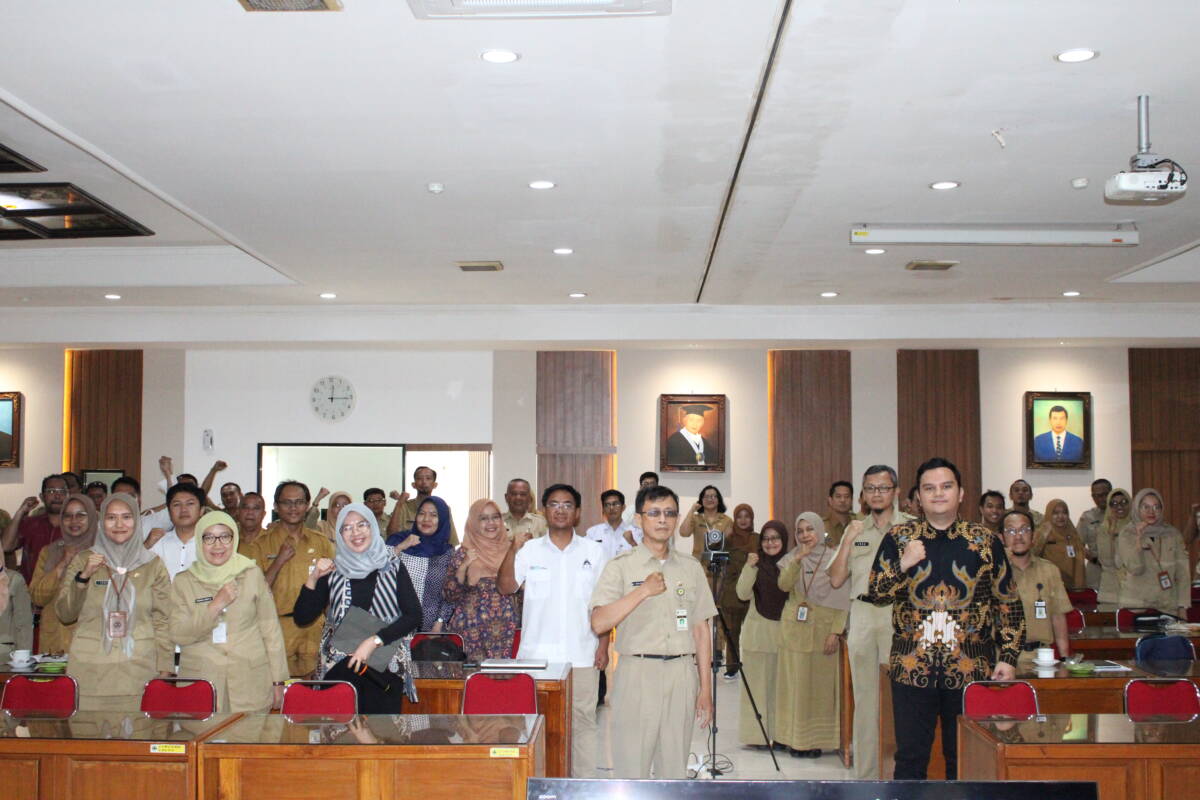Semarang, November 11, 2024 – The Value of Carbon Economy (NEK) policy is an important instrument in dealing with the climate crisis, both in the context of mitigation and adaptation. With this policy, the government and related parties can more effectively strengthen carbon emission reduction initiatives needed to reduce the rate of climate change. NEK supports various policies and projects that have a positive impact on the environment and the quality of life of the community. This was revealed by Muhammad Rizky Zein, Senior Sustainability Expert of the Indonesia Stock Exchange at the Workshop on Carbon Economic Value as a Supporting Strategy for Emission Reduction and Sustainable Development in Central Java organized by the Institute for Essential Services Reform (IESR) in collaboration with the Central Java Provincial Government on Monday (11/11/2024).
“The NEK operates through two main mechanisms: a trading mechanism and a penalty mechanism. The carbon trading mechanism allows entities that successfully reduce carbon emissions below the target to sell their excess carbon credits to parties that have not yet reached the emission reduction target. Meanwhile, non-trading mechanisms, such as carbon taxes, aim to incentivize industry and business actors to reduce emissions through a penalty or fine system,” Zein explained.
To support the effective implementation of the NEK, Zein said, a carbon exchange is an important infrastructure. The carbon exchange not only acts as a place for carbon credit transactions, but also as a means of transparency and accountability for the industry players involved. According to Zein, with a carbon exchange, decarbonization can be implemented more structurally and efficiently, so that emission reduction efforts can be achieved more quickly.
Joko Tri Haryanto, President Director of the Environmental Fund Management Agency (BPDLH) of the Ministry of Finance of the Republic of Indonesia emphasized that his party hopes to play a significant role in mobilizing various funding sources related to environmental management. Collaboration with various parties, both from the government and private sectors, is needed to support the effective implementation of NEK. The funds raised can be used for environmental projects that have a major impact on climate change mitigation.
“For regions in Indonesia, NEK provides an opportunity to access funding through result-based payment (RBP) mechanism or investment cooperation. Through this mechanism, local governments can act as beneficiaries for their success in reducing emissions or taking other actions that support environmental conservation,” Joko said.
Bayu Nugroho, Coordinator of Electricity Environmental Protection, Ministry of Energy and Mineral Resources explained that the region as the locus of emission sources as well as the locus of mitigation activities has an important role, as well as in the implementation of NEK and energy transition. For example, businesses in the region can participate in carbon trading through optimization and participation in mitigation action activities in the energy sector, as well as the development of an integrated NEK road map, development of GHG inventory systems and mechanisms that are accountable, transparent, inclusive, and sustainable.
“Renewable energy is also an important sector that Central Java can optimize to support NEK. Programs such as GEF Sustainability Energy open up funding opportunities that can support the transition to more environmentally friendly energy, which will ultimately reduce dependence on fossil fuels,” said Bayu.
Rizqi Prasetyo, Subnational Coordinator for Sustainable Energy Access at IESR, said that the Value of Carbon Economy Workshop aims to increase the understanding of Regional Apparatus Organizations (OPD) in Central Java regarding the role that can be taken by the Regional Government in the implementation of NEK, so that it is expected to encourage emission reduction practices by various parties.
“A proper understanding of the NEK can encourage sustainable economic development and boost emission reduction efforts. Cross-sector collaboration between local governments, the private sector, and financial institutions needs to be encouraged in order to create a low-emission investment ecosystem through the implementation of the NEK,” said Rizqi.
The event was attended by 137 participants consisting of 64 participants attending offline and 73 participants attending online, consisting of representatives of OPD at the provincial and district/city levels, academics, and industry in Central Java.

